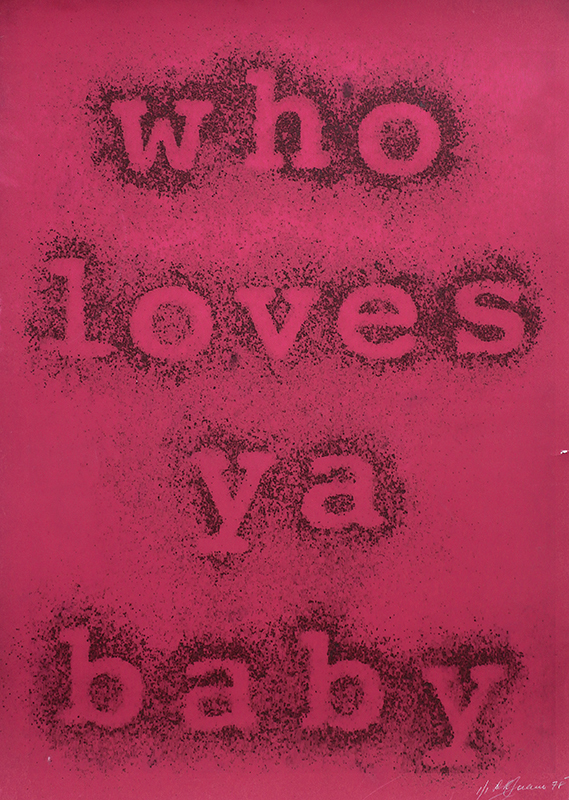
19th, 20th & 21st Century Fine Prints
707-546-7352 · fax 707-546-7924 · web: www.annexgalleries.com · email: artannex@aol.com
She was a liar but I believed every word she said (Who Loves Ya, Baby) (from "Signs") by David R. Julienne



She was a liar but I believed every word she said (Who Loves Ya, Baby) (from "Signs")
David R. Julienne
She was a liar but I believed every word she said (Who Loves Ya, Baby) (from "Signs")
David R. Julienne
1949 - PRESENT (biography)"Who loves ya baby" was a phrase used by actor Telly Savalas in the TV series "Kojak", which ran from 1973-75 on CBS. Critic Steve Gilliland comments: "It was not really an expression of love, but a throw-away line that implied 'you do something for me, I'll do something for you.' He kind of envisioned our era and many people whose love, unfortunately, is conditional."
Artist David Julienne provided the following statement about his series of monoprints "SIGNS": "SIGNS is a series of messages containing broad elements of 60s Pop, 70s Minimalism and the verbal emptiness of contemporary advertising. The SIGNS are manufactured on sheets of achival Rives BFK. The virginal white art paper has an overall candy-like coating applied by the industrial screen printing process, obliterating its truth. With the most minimal craft possible, the text is formed by the rapid and violent bomb-like combustion of ignited gunpowder burning the surface of the print.
The intent is to created a complicity between the SIGNS and the audience, oblique and autobiographical, public and private, self-revealing yet stylisically anonymous. SIGNS are not intended to be stretched, mounted, or framed, for the SIGNS are in a state of arrested self destruction, unprotected, vulnerable. To these means SIGNS are merely to be pinned to the wall, much like a handbill left to twist in the wind."
Multidisciplinary artist David R. Julienne was born in Oakland, California, on January 16, 1949. While attending Hayward High School he studied photography under Herb Brodahl, and after graduation in 1967 he began taking studio art lessons at Chabot College, earning his A.A. in 1971. He then attended the San Francisco Art Institute where he focused on printmaking, studying under Robert Fried for whom he would later become a studio assistant. In 1975 he completed his B.F.A. at Cal State Sonoma (now Sonoma State University) in Rohnert Park, California, studying under printmaker Shane Weir and painter and photographer Bill Morehouse. He also studied with environmental sculptor Phyllis "Wopo" Holup.
In 1976, Julienne found work as a rigger for Christo and Jean-Claude's "Running Fence" installation in Sonoma County, an experience he says "profoundly changed view of art. The monumental scope and scale of the project made me question my own work."
Though he had been accepted into the M.F.A. program at Mills College in Oakland in 1977, he dropped out after one semester and pursued a professional career in the textile design and garment industry, eventually partnering with fashion designer Lisa Arden in a manufacturing business and continuing to create his own art work in the meantime.



